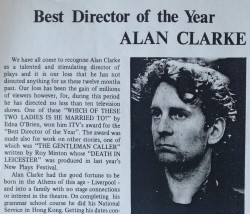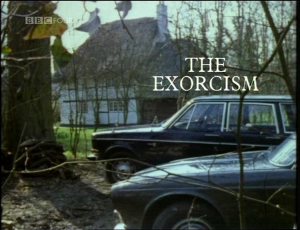by DAVID ROLINSON

Alan Clarke was neglected for a long time by television scholars and, because all but three of his approximately sixteen screen credits between 1967 and 1989 were for television, film scholars. This has changed in recent years: see Richard Kelly’s 1998 book of interviews1 and my book from 2005, the first (and, I hope, not last) critical study of Clarke’s work.2 Best of all, in May 2016, the vast majority of Clarke’s surviving work will be made available – much of it for the first time and some of it after previously being thought lost – in the BFI DVD and blu ray releases Dissent & Disruption: Alan Clarke at the BBC. Now everyone can find out what people have been so excited about. However, Clarke was first and foremost a television director, and as wonderful as it is that film fans are discovering Clarke, his work must be seen in the context of British television drama rather than as an aberration from it. Discussions of Clarke understandably prioritise his mid-to-late 1980s work, but this particular biography is designed to accompany the essays on this site about the dozen productions he made for Play for Today, which form around one-fifth of his total output.


